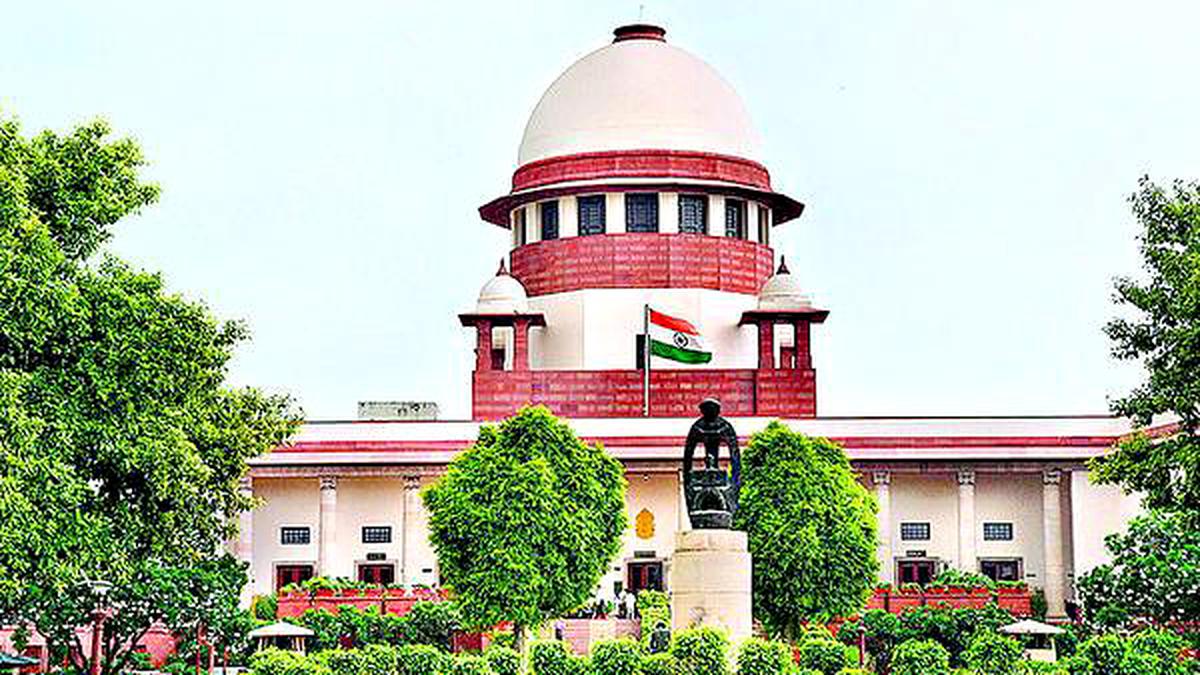Pune BPO employee rape-murder case: Supreme Court upholds Bombay HC order commuting convicts’ death penalty to life

A view of the Supreme Court of India. File
| Photo Credit: The Hindu
The Supreme Court of India on Monday (December 9, 2024) upheld an order of the Bombay High Court which commuted the death penalty of two convicts in the 2007 Pune BPO employee gang-rape and murder case to “life term for a period of 35 years” on the grounds of an inordinate delay in executing them.
A Bench of Justices Abhay S. Oka, Ahsanuddin Amanullah and Augustine George Masih dismissed the appeal filed by the Maharashtra Government challenging the Bombay High Court judgment.
Explained | What is the Supreme Court initiative on capital punishment?
The convicts — Purushottam Borate and Pradeep Kokade — were to be executed on June 24, 2019 but the High Court said on June 21, 2019 that the execution should not take place until further orders.
The High Court on July 29, 2019 had allowed the convicts’ petitions to stay the execution of their death warrant. “We find that the delay in executing the death penalty in the present case was undue, inordinate and unreasonable,” the High Court had said.
The High Court had said that the delay could have been avoided if the mercy petitions and the final execution were dealt with some sense of urgency. “We find that there has been undue and unexplained delay by both the State and Central Governments in processing the mercy petitions,” the High Court had said.
Editorial | Life over death: On death penalty abolition and parliamentary panel report
“Here we have to consider a case of two convicts who have to be hanged. When the protection of Article 21 of the Constitution of India (Right to life and personal liberty) is at stake then the Executive, Court of Law or the Governor and President of India stand at the same pedestal,” the High Court had said.
“Thus, delay by any arm of the State or the Central Government would be against the fundamental rights of the convicts,” it had added.
“It is clear that the actual execution of the death penalty is at the hands of the State Government. The State Government has to fix a date and obtain death warrant,” the judgment said. “Thus, merely writing letters to the sessions court seeking for a date to be fixed for execution of the death penalty cannot be seen as compliance,” it had added.

“In such a situation, we commute the death penalty to life term for a period of 35 years considering the time already spent by the petitioners in jail,” the High Court had said in its judgment.
On November 1, 2007, a Wipro BPO employee, who was then 22 years old, got into the regular cab contracted by the company to report for her night duty in a Pune suburb. Cab driver Borate, accompanied by his friend Kokade, changed the route and took her to a remote place, where they raped her and strangled her with her ‘dupatta’. They also disfigured her face.
The duo was convicted and awarded death penalty by a sessions court in March 2012 for kidnapping, raping and murdering the woman. In September 2012, the High Court confirmed the punishment and the verdict was upheld by the Supreme Court in May 2015.

Published – December 09, 2024 01:03 pm IST









